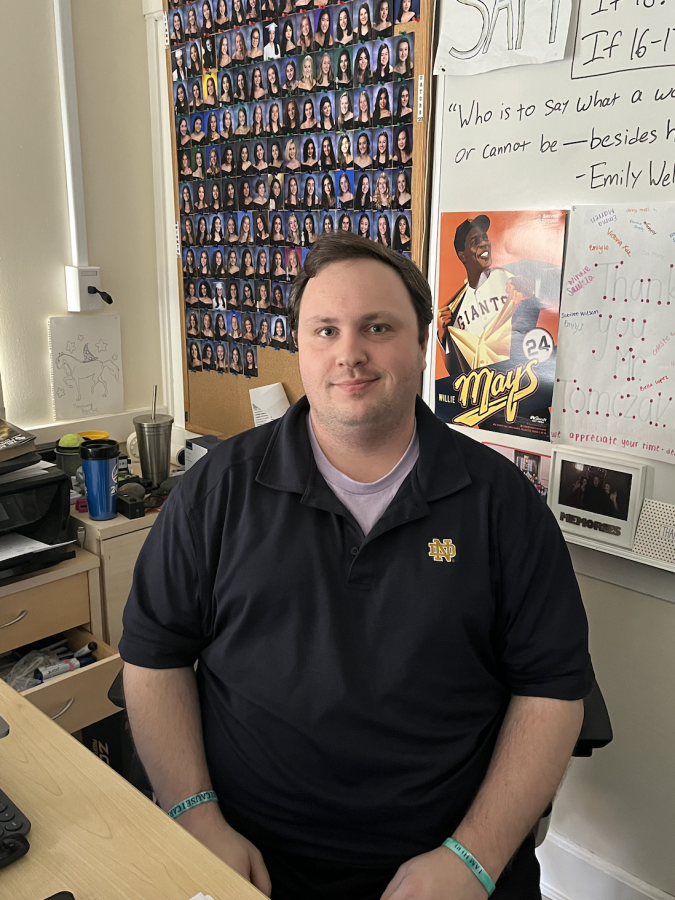The Catalyst / Ariana Kraemer
Mr. Tomczak in his classroom during lunch
Jonathan Tomczak, Social Science Department Chair
The Catalyst (TC): What is your (initial) reaction to the masking guidelines?
Jonathan Tomczak (JT): I guess I didn’t have a very strong reaction to it, since it was made more for people’s comfort. Because guidelines themselves are flexible and there just was not much to react to.
TC: Why do you choose to wear a mask or not wear a mask?
JT: I guess I’m currently choosing based on the fact that it’s been two years since I have not had to wear a mask around people and just trying it out. My opinion, my thought can change tomorrow. Right now its just kind of a chance to try the alternative yet so I’m trying that out for a little bit and then we will see if I change my mind.
TC:What do you think of people who think differently from you: Those that are or are not wearing a mask?
JT: Well I don’t really think either way because I don’t assume their intentions. Again, everyone’s personal choice and that choice is based off reasons that are unique and private to them. And assumptions I make could may or may not be correct so let everybody make their own choice and I don’t wonder about why and I don’t interrogate as to why. That’s how we end up respecting everybody’s personal choice and fulfilling that hallmark of respecting the dignity and sacredness of each person.
TC:Do you think dropping masks in school was the best decision for the state to make?
JT: I think the important thing is that it was a decision based on the best data we have in terms of vaccination rates and fallen case rates and what not. Whether the decision should have been made at the threshold it was or it should have been made at a higher or lower threshold, that’s not really to say since I’m not an expert who has all that data and trying to make sense of it. I can understand why it was made now, and we’ll see what happens but I don’t mind it either way.
TC:Do you think there should be an online option for community members that are not comfortable with these masking guidelines?
JT: At this point an online option would probably be, it’s all about benefit verses cost. And the cost for continuing the isolated at home when we know that the combination of vaccinations and masking, the risk of transmission is significantly lower. I think at this point that outweighs the potential benefit for staying at home. We all want to be back together and we all want to be safe and we are getting closer and closer to the point were these things are not mutually exclusive for anyone.
TC:Do you think cases will go up since now it is mask optional?
JT: I think at some point in the future you probably will see cases go up. We know that these things have spiked every winter, we know that when restrictions are lessened you see an uptake in cases. So will cases go up, yes. The key question is how much and how severe are those cases when they happen. Other than the virus disappearing, the ideal scenario is that it becomes something that people can catch but won’t make them so sick that they need to go to the hospital or that their lives are at risk. So if we get to that point, then even if cases go up it’s not the worst thing every and we see this in the fact that the decisions being made are not being made just on case numbers anymore, they are being made more and more on hospitalization cases. Because that’s the big concern in the health care system, so long as that’s not happening, even when cases go up we should be fine.
